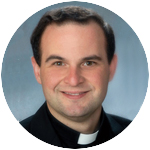
Father Eric J. Banecker
The Huffington Post recently published a long-read article which chronicles the ongoing, quietly dramatic shift in religious life in the United States. Many of the “legacy orders” which educated and cared for generations in the big cities are facing an aging membership, while new communities like the Sisters of Life and the Nashville Dominicans have seen an impressive number of vocations in recent years.
These trends – which have many explanations – would not be breaking news to most active Catholics at this point. But reading about it in an avowedly secular publication like HuffPo provides a whole new window into the phenomenon.
The author, a millennial herself, writes with a healthy dose of understanding – even admiration – for the women she meets, even as her slightly tongue-in-cheek tone betrays her own secular commitments.
[hotblock]
The women she interviews are millennials to the core, which is perhaps why the author, Eve Fairbanks, relates so well to them. They are multi-taskers at life, pleasant and likeable, but also unrooted and in a perpetual state of indecision. As Catholics, these young women match the profile of active young Catholics in general: doctrinally orthodox, interested in preserving traditional practices, yet open to new and creative methods of advancing the Church’s mission.
Ironically, this generational shift which Fairbanks identifies in her peers sounds oddly similar to Benedict/Ratzinger’s desire for a “creative minority.” But I digress.
The article has much to commend it, and I encourage others to take a look at it (warning: it has a few four-letter words and is a bit cavalier in describing some central aspects of Catholic belief). But here’s my primary takeaway: we don’t actually do better with secular people by trying to be just like them. As St. Paul writes, “do not conform yourselves to this age, but be transformed by the renewal of your mind.”
That doesn’t mean we need to be hostile or mean to those who disagree with us. Rather, it means that when a few young women in Sisters of Life habits walk down the street, people notice! (Trust me, I’ve seen it.) Most people – even ex-Catholics – are not actively hostile to the church, but rather coolly skeptical or indifferent.
[tower]
The way we change hearts, then, is simply by being who we are joyfully and publicly. The attempt to make the church more palatable to society – while perhaps well intentioned – doesn’t actually do anything to improve our standing, and only makes our own people confused about what we believe.
Secular articles may write approvingly of public Catholics who disavow church teaching – but here, the Huffington Post wrote about young religious sisters with, I think, a legitimate sense of respect (even, dare I say, reverence?).
One of the spiritual works of mercy is to “comfort the sorrowing.” It seems our world is in a collective and ongoing state of grief, characterized by listlessness, depression, addiction and even, as recent crimes have shown, sociopathy. Just reading about the millennial nuns is a comfort – knowing a few is even better! Spending time with FOCUS missionaries is another refreshing experience.
As a parish priest, I am often in awe of many awesome and faithful Catholic families and individuals who show great charity in ways almost entirely unseen. Such awesome signs of the work of the Holy Spirit are right in our midst every day. All of us – including this priest – would do well to appreciate them a bit more!
Rich, vibrant, faithful Catholic life confronts us in our collective sorrow and binds us together in a web of relationships. This – not economic deregulation or expanded social license – is the cure for our societal malaise. From El Paso to Dayton, from Nicetown to suburbia, our collective psychoses are on full display. But in the midst of it all, many are embracing not hollowness but holiness.
In chronicling the discernment of a few young women, the Huffington Post has shed light on this reality for those who would not otherwise know. May it inspire others – especially the millions of millennials who have drifted away from religious practice – to peek into a church once in a while to see what’s going on.
***
Father Eric J. Banecker is parochial vicar at St. Pius X Parish in Broomall.


Share this story